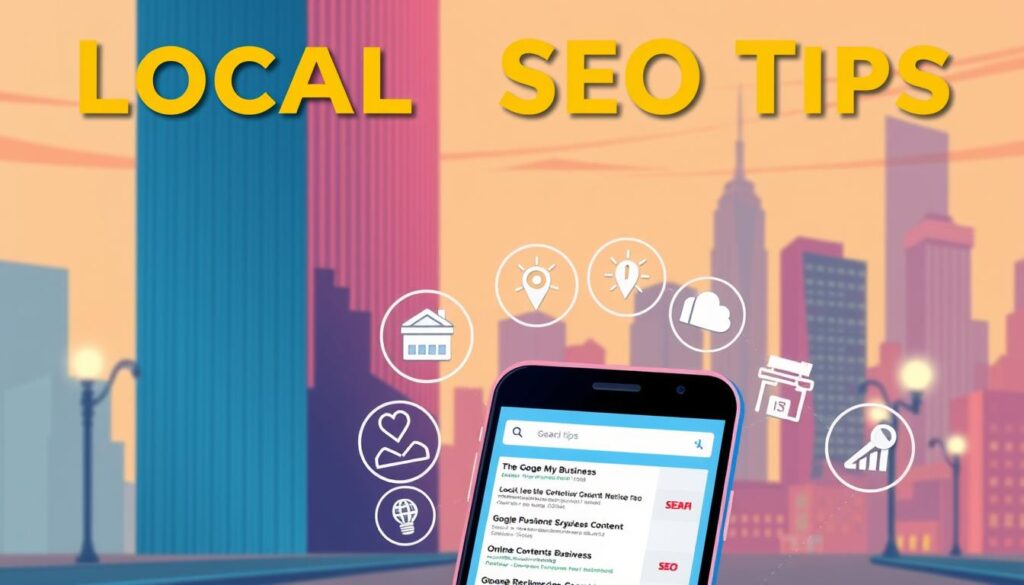In today’s fast-paced digital landscape, understanding the true cost of digital marketing is crucial for businesses aiming to maximise their online presence. Whether you’re a small business owner or a marketing manager, grasping the financial aspects of digital marketing can make a significant difference in your ROI.
This guide provides a comprehensive breakdown of digital marketing costs in the UK, covering everything from monthly retainers to one-off project fees. We’ll explore how factors like location, agency experience, and service type influence pricing, ensuring you have a clear understanding of where your money is going.
With data adjusted for inflation and current market trends, this article will help you navigate the complexities of digital marketing pricing. You’ll learn how services such as SEO, PPC, and content marketing contribute to overall costs, and how to budget effectively for your next campaign.
Key Takeaways
- Average monthly digital marketing costs in the UK range from £500 to £2,000.
- Project-based digital marketing can cost between £2,000 to £10,000 or more.
- Location plays a significant role in pricing, with agencies in London often charging more than those in other regions.
- Hourly rates for digital marketing services vary widely, from £40 to over £140.
- Small businesses should allocate 7-8% of their revenue to marketing for optimal results.
Introduction to Digital Marketing Costs
In the dynamic UK market, digital marketing has become indispensable for businesses aiming to connect with their target audience effectively. As competition grows, understanding the financial aspects of digital marketing strategies is essential for optimizing your return on investment (ROI).
Why Digital Marketing is Essential in the UK
Digital marketing serves as a vital tool for modern businesses, enabling them to engage with customers across various platforms. A well-crafted digital strategy not only enhances brand awareness but also fosters customer loyalty and drives consistent engagement. By leveraging channels like SEO, social media, and email marketing, businesses can reach their audience more effectively than traditional methods.
Evolving Trends and 2025 Projections
Current advertising trends are adapting rapidly to inflation and technological advancements. Businesses are increasingly focusing on measurable outcomes and ROI, ensuring their marketing efforts yield tangible results. As we look ahead to 2025, projections suggest continued evolution in digital marketing, with a greater emphasis on data-driven strategies and innovative technologies. These emerging trends will be explored in more detail later in this guide.
| Aspect | Importance | Impact on Business |
|---|---|---|
| Digital Strategy | High | Drives brand presence and customer engagement |
| ROI Focus | Medium | Ensures measurable and effective marketing efforts |
| Technological Advancements | High | Shapes future marketing trends and strategies |
For businesses considering their digital marketing strategy, choosing the right agency is crucial. For more guidance, visit our resource on how to choose a digital marketing agency in the.
What is the cost of digital marketing
Understanding the financial aspects of digital marketing is essential for businesses aiming to maximise their online presence. The cost of digital marketing can vary significantly based on factors such as the type of service, campaign complexity, and the platform used.
Breaking Down Key Metrics: Per Month, Per Project and Per Hour
On average, businesses in the UK spend around £1,065 per month on digital marketing. For project-based campaigns, the cost is approximately £2,002. Hourly rates for digital marketing services can range from £40 to over £140, depending on the expertise and scope of the work.
| Service Type | Average Cost | Key Considerations |
|---|---|---|
| Monthly Retainer | £500 – £2,000+ | Covers ongoing services like SEO and social media management. |
| Project-Based | £2,000 – £10,000+ | One-off campaigns or specific goals, such as website design. |
| Hourly Rate | £40 – £140+ | Consulting or specialised tasks requiring expertise. |
The Role of Google and Key Metrics
Google’s metrics play a crucial role in shaping digital marketing pricing. Key performance indicators (KPIs) such as click-through rates, conversion rates, and return on ad spend (ROAS) help determine the effectiveness of campaigns and influence budget allocation.
Monthly vs. Project-Based Spending
Monthly retainers provide consistent support, ideal for ongoing strategies. Project-based spending is better for specific objectives, offering flexibility. Understanding these distinctions is vital for aligning your budget with business goals and ensuring a strong return on investment.
Budgeting for Your Digital Marketing Strategy
Creating a well-structured digital marketing budget is essential for businesses looking to thrive in the competitive UK market. Understanding how to allocate resources effectively can significantly impact your return on investment (ROI) and overall business growth.
Setting a Realistic Marketing Budget
A realistic marketing budget should align with your company’s revenue and growth objectives. For instance, a business with an annual revenue of £500,000 might allocate around 6.4% of this amount, resulting in a monthly budget of approximately £2,667. However, aiming for closer to 10% can often yield better results.
| Budget Allocation | Percentage of Revenue | Purpose |
|---|---|---|
| Conservative | 5% – 8% | Maintaining current market position |
| Competitive | 8% – 11% | Expanding market share |
| Aggressive | 12% – 15% | High-growth strategies |
Aligning Your Budget with Business Goals
Aligning your budget with specific business goals ensures that your marketing efforts target the right customer segments. Clear ROI measurements are crucial, allowing you to track the effectiveness of your campaigns through KPIs such as click-through rates and conversion rates. For more insights on effective budget planning, visit our resource on marketing budget planning.
Digital Marketing Services Breakdown
Understanding the various services that make up your digital marketing strategy is key to budgeting effectively. Each service contributes differently to your overall costs, and knowing these details helps you make informed decisions.
SEO, PPC, and Content Marketing Costs
SEO services typically range from £1,500 to £5,000 per month, depending on the scope and complexity. PPC advertising can cost between £9,000 and £10,000 monthly, offering a strong ROI with £2 earned for every £1 spent. Content marketing usually falls between £2,000 and £10,000 per month, generating more leads than traditional methods.
Social Media and Website Service Pricing
Social media marketing generally costs £4,000 to £7,000 monthly, varying by platform and ad spend. Website design is a one-time expense, ranging from £1,000 to £100,000, depending on functionality needs. These services often come in packages or retainers, which can influence overall pricing structures.
Investing in comprehensive service packages often provides better value than one-off projects, as they offer consistent support and adapt to your evolving needs. For more details on top digital marketing services, visit this resource.
How Service and Campaign Types Impact Cost
When planning your digital marketing strategy, the type of service and campaign you choose can significantly influence your overall expenditure. Whether you opt for hourly rates, monthly retainers, or tailored services, each model has its own set of advantages and financial implications.
Hourly Versus Monthly Retainers
Hourly-based pricing is ideal for short-term projects or specific tasks, offering flexibility and transparency. You only pay for the time spent on your project. On the other hand, monthly retainers provide ongoing support, making them suitable for long-term strategies. Retainers often include a set of predefined services, offering stability and predictable costs.
For instance, if your business needs consistent SEO support, a monthly retainer might be more cost-effective than hourly rates.
Tailored Services Versus Tiered Pricing Models
Tailored services are customised to meet your specific needs, offering flexibility and personalisation. This approach is particularly beneficial for businesses with unique requirements. Conversely, tiered pricing models provide structured packages with predefined features, making them more cost-effective for those with standard needs.
Tiered models often include bundles that can save you money compared to à la carte services.
Understanding these pricing models will help you make informed decisions that align with your business goals and budget. By choosing the right service type, you can optimise your spending and achieve a better return on investment.
Factors Affecting Digital Marketing Costs in the UK
Several factors influence the cost of digital marketing services in the UK. Understanding these elements can help businesses make informed decisions about their marketing budgets. Industry, location, competition, and agency reputation are key factors that shape pricing.
Influence of Industry, Location and Competition
Your industry plays a significant role in determining digital marketing costs. For instance, highly competitive sectors may require more resources to stand out. Location also matters, with agencies in London often charging higher rates than those in other regions. Competition levels can drive up costs, particularly in industries where businesses are vying for the same audience.
| Factor | Impact on Cost |
|---|---|
| Industry | Higher competition industries incur greater costs. |
| Location | London agencies typically charge more. |
| Competition | Increased competition raises marketing expenses. |
Agency Reputation and Client Testimonials
An agency’s reputation and client testimonials are crucial in assessing service quality and cost. Reputable agencies often charge more but deliver proven results. Testimonials provide insights into an agency’s reliability and effectiveness, helping you evaluate if their services align with your budget and goals.
Cost-Effective Digital Marketing Options for Small Businesses
For small businesses in the UK, embracing digital marketing doesn’t have to break the bank. With the right strategies, you can achieve significant brand impact and measurable results without a large upfront investment.
Affordable Services to Get Started
Starting your digital marketing journey can be both cost-effective and impactful. Consider beginning with low-cost projects such as blog posts and targeted social media campaigns. These options allow you to build your brand presence without overextending your marketing spend from the outset.
Organic search is another cost-effective channel. By optimising your website for relevant keywords, you can attract targeted traffic without paying for ads. Tools like Google Keyword Planner can help identify high-traffic keywords with low competition, making your SEO efforts more efficient.
Targeted campaigns on platforms like Instagram can also yield higher returns. By tailoring your messages to specific demographics, interests, and geographical locations, you can increase engagement and conversions.
Customising Your Investment Based on Business Size
Your business size should dictate how you allocate your marketing resources. For smaller businesses, it’s essential to leverage existing resources and free digital tools to maximise your reach. For instance, Google Analytics offers free insights into website traffic and user behaviour, helping you assess the effectiveness of your marketing efforts.
Customising your investment allows you to scale your marketing efforts gradually. Start with essential services like SEO and social media management, then expand as your business grows. This approach ensures you’re not over-investing early on while still building a strong online presence.
Remember, cost-effective strategies can still deliver strong brand impact. By focusing on valuable, relevant content and leveraging low-cost digital channels, you can achieve your marketing goals without a substantial budget.
For more information on affordable digital marketing packages tailored to small businesses, visit our resource here.
Future Trends in Digital Marketing Costs
As we look ahead, the digital marketing landscape is poised for significant changes. Inflation, technological advancements, and shifting client expectations will shape how businesses allocate their budgets. Understanding these trends is crucial for staying ahead in a competitive market.
Impacts of Inflation and Market Dynamics
Inflation is expected to influence digital marketing costs, with agencies adjusting their pricing models to accommodate economic changes. Businesses may need to budget more for essential services, even as they seek cost-effective solutions. This shift could lead to a greater emphasis on ROI-driven strategies, ensuring that every pound spent delivers measurable results.
Technological Advancements and Shifts in Budget Allocation
Technological advancements, particularly in AI and machine learning, are revolutionising digital marketing. These tools enable more precise targeting and personalised campaigns, potentially reducing costs. Agencies are adopting value-based pricing, focusing on outcomes rather than fixed fees. This approach aligns pricing with the value delivered, offering transparency and flexibility for businesses.
For instance, AI-driven tools can optimise campaigns in real-time, improving efficiency and reducing waste. This shift towards performance-based pricing is expected to grow, with businesses prioritising agencies that guarantee results. As a result, marketing budgets may increase, but with a clearer focus on measurable outcomes.
Staying informed about these trends is essential for adapting your strategy effectively. By understanding how inflation and technology influence costs, you can make informed decisions that drive growth and sustainability in the ever-evolving digital landscape.
Conclusion
In the ever-evolving digital landscape, a well-planned strategy and transparent pricing are key to managing digital marketing costs effectively. This guide has provided a comprehensive overview of the factors influencing these costs, from monthly retainers to project-based fees, ensuring you have the insights needed to make informed decisions.
Key takeaways include understanding specific service costs, measuring ROI, and aligning your budget with business goals. A thoughtful marketing strategy that combines design, SEO, and content marketing can significantly enhance your online presence and drive success. Use this guide as a roadmap to plan and adjust your digital marketing investments, ensuring every pound spent yields measurable results.
For more detailed insights into digital marketing costs and how to optimise your strategy, visit our resource on digital marketing cost in the UK. Remember, a well-informed company is better equipped to compete and grow in today’s fast-paced digital world.
FAQ
How do I determine a realistic digital marketing budget for my business?
Start by assessing your business goals and target audience. Allocate funds based on the channels that align with your objectives, such as SEO, PPC, or social media. Consider your industry standards and competition to ensure your budget is competitive yet realistic.
What is the average ROI I can expect from digital marketing?
The ROI varies depending on your strategy and execution. On average, businesses see a 200-300% return on their digital marketing spend, but this can fluctuate based on factors like ad relevance and audience targeting.
Which digital marketing platforms are best for brand awareness?
Platforms like Instagram, Facebook, and Google Ads are excellent for boosting brand awareness. They offer targeted ads and analytics to track your reach and engagement effectively.
How much should a small business spend on digital marketing monthly?
Small businesses typically allocate between £500 to £5,000 per month, depending on their goals and industry. Start with a modest budget and scale as you see measurable results.
What factors influence the cost of digital marketing services?
Costs are influenced by your target audience, competition, and the complexity of your strategy. Agency fees, ad rates, and the tools used also play a significant role in pricing.
Can I manage digital marketing without an agency?
Absolutely! Many businesses use DIY tools like Google Analytics and social media schedulers to manage their marketing efforts. However, an agency can provide expertise and save time if your budget allows.
How do I measure the success of my digital marketing campaigns?
Track key metrics such as website traffic, conversion rates, and ROI. Use analytics tools to monitor performance and adjust your strategy accordingly to optimise results.
What is the difference between PPC and SEO?
PPC (Pay-Per-Click) involves paid ads where you pay for each click, while SEO (Search Engine Optimisation) focuses on improving your website’s ranking through organic methods. Both are effective but serve different purposes in your marketing mix.
How long does it take to see results from digital marketing efforts?
Results can vary, but you may start seeing improvements in website traffic and engagement within a few weeks. Significant ROI often becomes apparent after 3-6 months of consistent effort.
Can I customise my digital marketing strategy based on my business size?
Yes, your strategy should be tailored to your business size and goals. Whether you’re a small startup or an established company, there are scalable solutions to fit your needs and budget.










